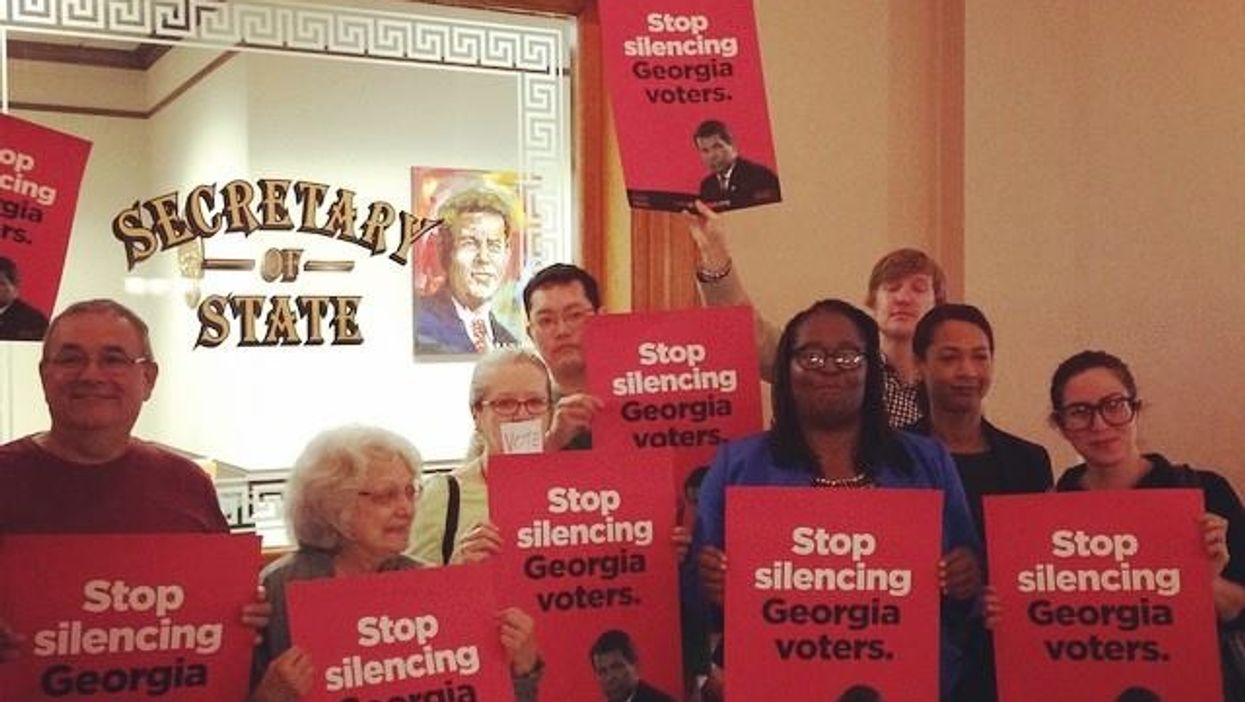Nsé Ufot is executive director of the New Georgia Project and its political arm, the New Georgia Project Action Fund, a voter registration organization founded by Stacey Abrams when she was a Democratic leader in the state House. Ufot emigrated from Nigeria to Atlanta as kid, graduated from the Georgia Institute of Technology and University of Dayton Law School and was previously an executive at Canada's largest faculty union and a lobbyist for the American Association of University Professors. Her answers have been lightly edited for clarity.
What's the tweet-length description of your group?
A nonpartisan civic engagement organization that has helped more than 400,000 Georgians register to vote since its 2014 launch.
Describe your very first civic engagement.
At 14, I served as a page in the Georgia House of Representatives. I shuffled notes between professional and grassroots lobbyists and the legislators I was tasked with supporting.
What was your biggest professional triumph?
Expanding the Georgia electorate by building a team and a program that has helped 400,000 young, black, Latino, Asian American and women voters register to vote.
And your most disappointing setback?
I don't have any. I count them all as learning opportunities.
How does your identity influence the way you go about your work?
I'm a naturalized citizen and a fierce patriot. I took an oath of allegiance to the United States of America and promised to defend its Constitution and its laws against foreign and domestic enemies to the best of my ability. Each day, I work to make sure that a government of, for, and by the people is the reality of folks like me from historically underserved and underrepresented communities.
What's the best advice you've ever been given?
What Jay Z said: "A wise man once told me don't argue with fools, 'cause people from a distance can't tell who is who." There's also Proverbs 26:4: Do not answer a fool according to his folly, or you yourself will be just like him.
Create a new flavor for Ben & Jerry's.
Georgia On My Mind: chocolate ice cream with peaches and peanuts. (I should crowd-source a better name.)
West Wing or Veep?
Both! I re-watch West Wing to remind me what is possible when smart, decent humans commit to working for the public good. Veep is hilarious and paints a sometimes uncomfortably accurate picture of the cast of characters that roams the halls of power.
What's the last thing you do on your phone at night?
Set the timer on whatever podcast I'm listening to for 20 minutes. I'm always asleep before it cuts off.
What is your deepest, darkest secret?
As a kid, I would cry if my sandwich had the thick, end piece of bread. As an adult that makes her own sandwiches, I throw the end pieces out without a second thought.




















